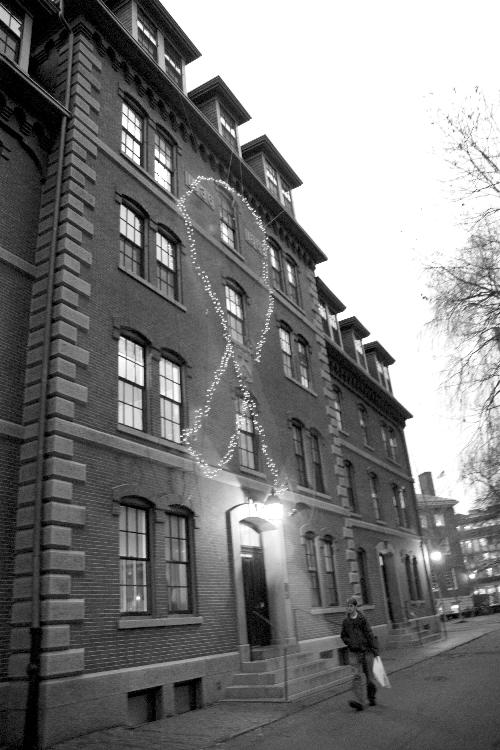
News
Cambridge Residents Slam Council Proposal to Delay Bike Lane Construction

News
‘Gender-Affirming Slay Fest’: Harvard College QSA Hosts Annual Queer Prom

News
‘Not Being Nerds’: Harvard Students Dance to Tinashe at Yardfest

News
Wrongful Death Trial Against CAMHS Employee Over 2015 Student Suicide To Begin Tuesday

News
Cornel West, Harvard Affiliates Call for University to Divest from ‘Israeli Apartheid’ at Rally
AIDS Awareness Spread Via Speech, Film

To wrap up its week-long salute to Global AIDS day, the Harvard AIDS Coalition (HAC) hosted a screening of the film, “And the Band Played On,” and a talk by one of the first experts to discover the AIDS viral agent.
Don Francis, whose research at the Center for Disease Control (CDC) in the early 1980s led to the identification of the AIDS virus, spoke of the history of AIDS and described the tensions at the CDC when gay men were dying of an unknown epidemic.
He lamented in particular the “negative political forces from Washington,” who, when the CDC asked for more research money, told him that additional funds “would not make a difference.”
Francis also talked about the challenge of facing today’s governmental bureaucracy. “There is a direct political line from the President to the CDC,” Francis said. “That means George Bush is in charge of public health. With a person like that in charge, you can see why it’s so bad.”
After his talk, a crowd of several dozen students watched a screening of, “And the Band Played on,” a real-life drama documenting Francis’ early work with the AIDS virus.
Matthew F. Basilico ’08, the HAC president, said HAC members had worked hard over the past week to promote campus-wide awareness of the debilitating disease, which, to date, has killed more people than all the wars in the 20th century combined and continues to kill 3 million people each year worldwide.
The general level of apathy is something we need to combat,” he said. “The future leaders of the world are here, and we want to make sure the future movers and shakers are knowledgeable about what’s going on. Harvard has a special place in the history of HIV, because we’ve done a lot of the research on HIV.”
In anticipation of yesterday’s event, the AIDS Coalition screened a series of three films, starting Monday night with “A Closer Walk.”
The AIDS Coalition also created a six-foot tall papier-maché AIDS ribbon, which they put in front of the Science Center.
While making the paper maché ribbon, Basilico said he thought of HAC’s main display, an AIDS ribbon made of red Christmas lights and chicken wire that is still hanging in front of Grays Hall in Harvard Yard. At night, the three-story ribbon, which took six hours to create, is easily the most conspicuous object in the Yard.
“I just hope that it starts generating dialogue,” said J. Claire Provost ’07, secretary of HAC, who is also a Crimson editor.
This also marks the first year that HAC has worked together with other Harvard organizations to fundraise. HAC, in conjunction with the Harvard African Students Association, is selling Christmas cards to raise money for the World Youth Mission, which supports children in Africa left orphaned by AIDS.
“We’re trying to form a closer relationship with the AIDS Coalition right now,” said Obafunso “Demi” A. Ajayi ’07.
According to Basilico, though, raising money and awareness is only one aspect of HAC’s mission. The group is also spearheading an international service project to donate textbooks to rural African countries. Members visit Roxbury Community Center every other Saturday to cook meals for AIDS patients.
But Basilico says that these sorts of direct-impact projects are a limited way to affect the AIDS epidemic. He said students should focus on doing things like getting universities to allow developing countries to use their patented technologies.
“There are tons of avenues to be explored that aren’t a quick fix,” he said. “Obviously, this is a direct service, but at the same time, it becomes apparent that if you’re not specifically trained, like being an M.D., there are barriers. If Harvard changed their policy on licensing their intellectual compounds, it would cause a huge ripple effect, and that’s something the students can be very effective to change.”
Want to keep up with breaking news? Subscribe to our email newsletter.
